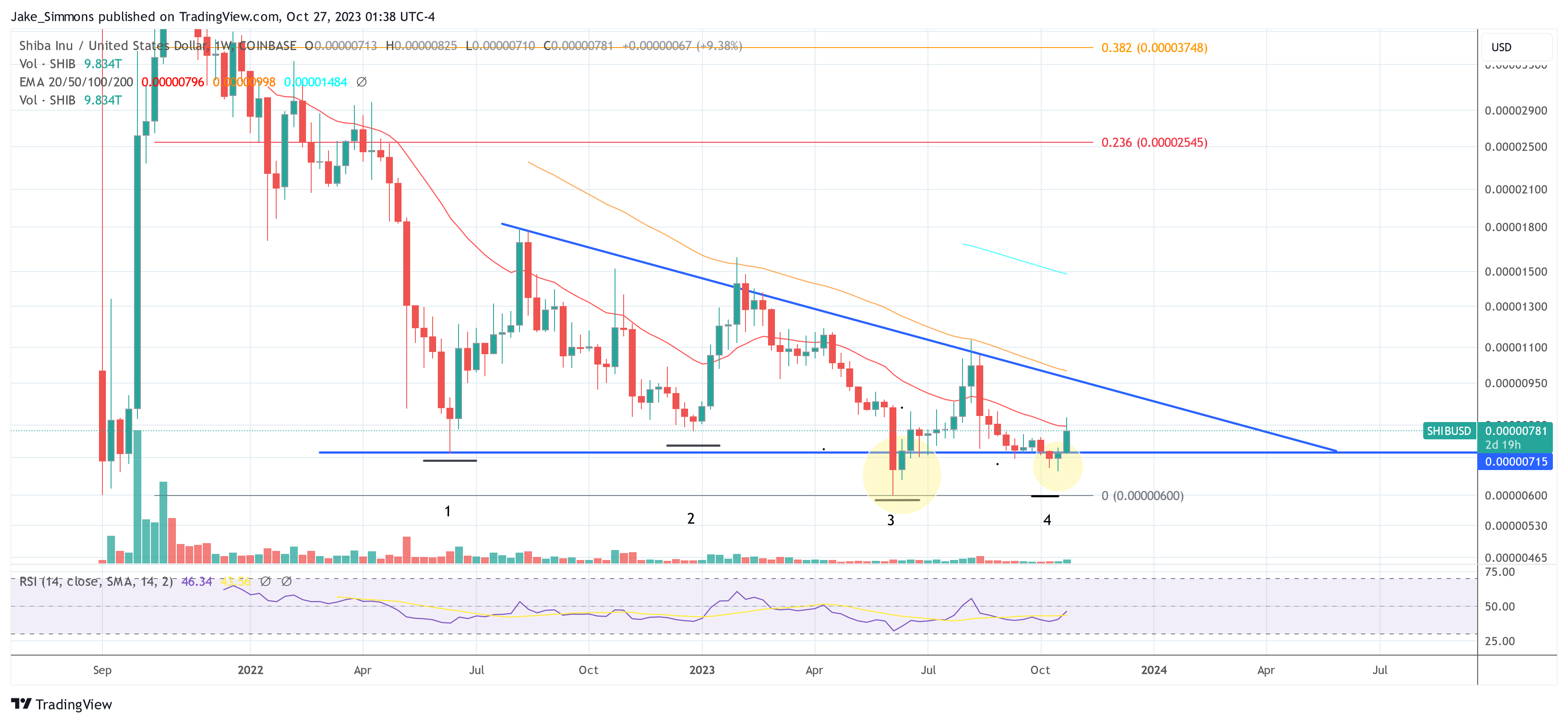The Shiba Inu community was buzzing recently, seeking clarity on the burning process of SHIB tokens on Shibarium, the project’s layer-2 (L2) blockchain network. Addressing these concerns, Shiba Inu’s marketing lead, Lucie, broke down the mechanics of the process in a detailed statement on X (formerly Twitter) that shed light on the complexities involved.
SHIB Burns On Shibarium
Lucie began by delving deep into the intricacies of the bridging process between Ethereum (L1) and Shibarium (L2). She stated: “When you initially bridge your SHIB to Shibarium, the original SHIB tokens are locked in the bridge contract, while a version of the token is minted on Shibarium.”
This means that while the L1 Ethereum-based SHIB tokens are technically “out of circulation”, they aren’t destroyed. Instead, an equivalent token gets minted on the L2 Shibarium network.
To emphasize the importance of this distinction, she elaborated, “This means that when you decide to burn your Shib on Shibarium, you are actually burning the minted version, while the original tokens remain locked in the bridge contract.” This statement underscores the idea that even if SHIB tokens are burned on Shibarium, they aren’t subtracted from the original Ethereum-based supply.
Lucie then offered a step-by-step guideline for developers and the community. “To ensure the proper process, if you are a part of the Shibarium project and wish to burn SHIB, please make sure to bridge your SHIB back to the Ethereum network and then send it to the dead wallet,” she instructed.
In response to the inherent complexities of this system, one community member pointed out that if Shiba Inu tokens are locked in the bridge contract indefinitely, it mirrors the effects of a “burn”, as the tokens aren’t circulating. Addressing this, Lucie concurred, “Yes, they are. The problem is that some argue that they are not burned because they are not in dead wallets, they are burned in the bridge contract, no one can save it. So I’m posting this to be clear.”
Engaging with the community, Lucie responded to another query, emphasizing the collective decision-making in the Shiba Inu community. In reaction to a question about the absence of a built-in burn mechanism on Shibarium, Lucie stated, “The most important thing is that WE ARE ALL COMMUNITY. There is no dev wallet or marketing wallet to burn in Shiba. There are no free tokens to burn.”
A Continuing Debate In The Shiba Inu Community
The clarifications by Lucie follow a broader debate within the SHIB community regarding the actual impact of token burns on Shibarium. Critics argue that burns on this L2 platform don’t affect the circulating supply of SHIB tokens on the original layer-1 Ethereum blockchain. Shibburn, a recognized community-led burn tracker, argued recently that there’s a fundamental difference between burning on L1 and L2 networks, as Bitcoinist reported.
Shibburn asserted that while tokens might be burned on an L2 platform like Shibarium, this doesn’t translate to a reduction in SHIB’s total supply on Ethereum. The primary argument hinges on the fact that tokens burned on L2 are essentially the ‘representations’ or ‘minted versions’ of the original token, rather than the original L1 tokens themselves.
As Shibburn succinctly put it: “If you burn a token like SHIB on an L2 chain, you are not actually burning the original token on the L1 chain. Instead, you are burning a different token on the L2 chain.”
However, there’s a counter-narrative within the community. Some members argue that the ultimate objective is to remove these tokens from active circulation, irrespective of the specific layer on which the burn is executed. As one community member put it, “Whether L1 or L2 is irrelevant; the goal is to take this out of circulation.”
At press time, the Shiba Inu price stood at $0.00000781.

Source: https://bitcoinist.com/shiba-inu-why-shibarium-does-not-burn-shib/
